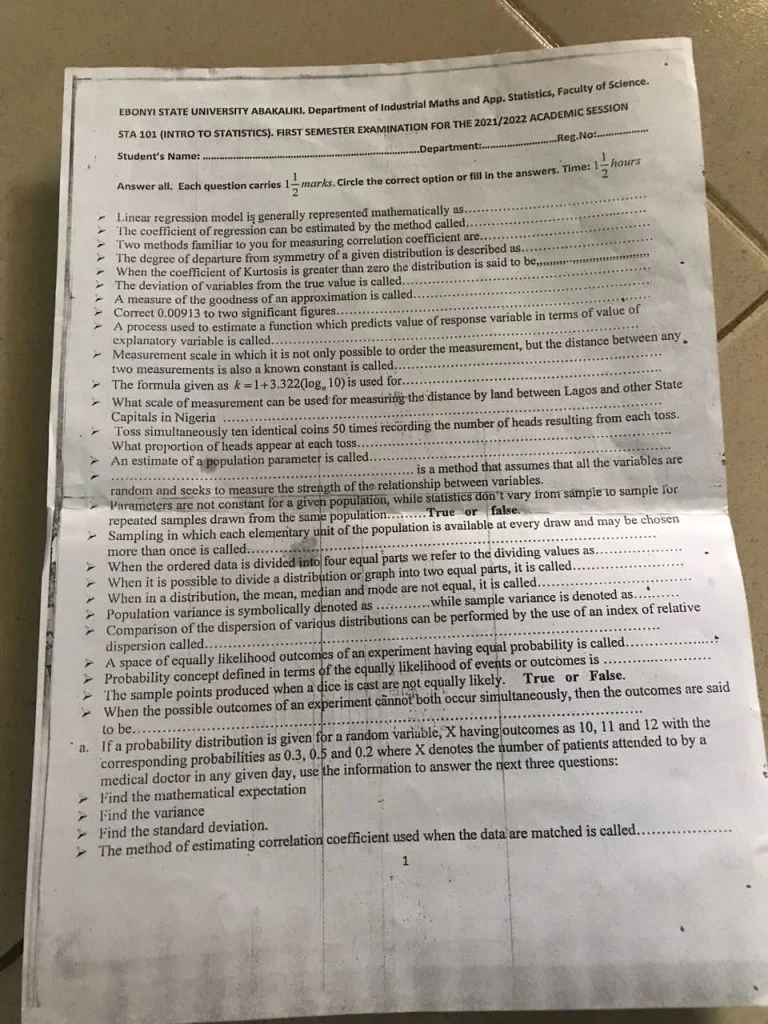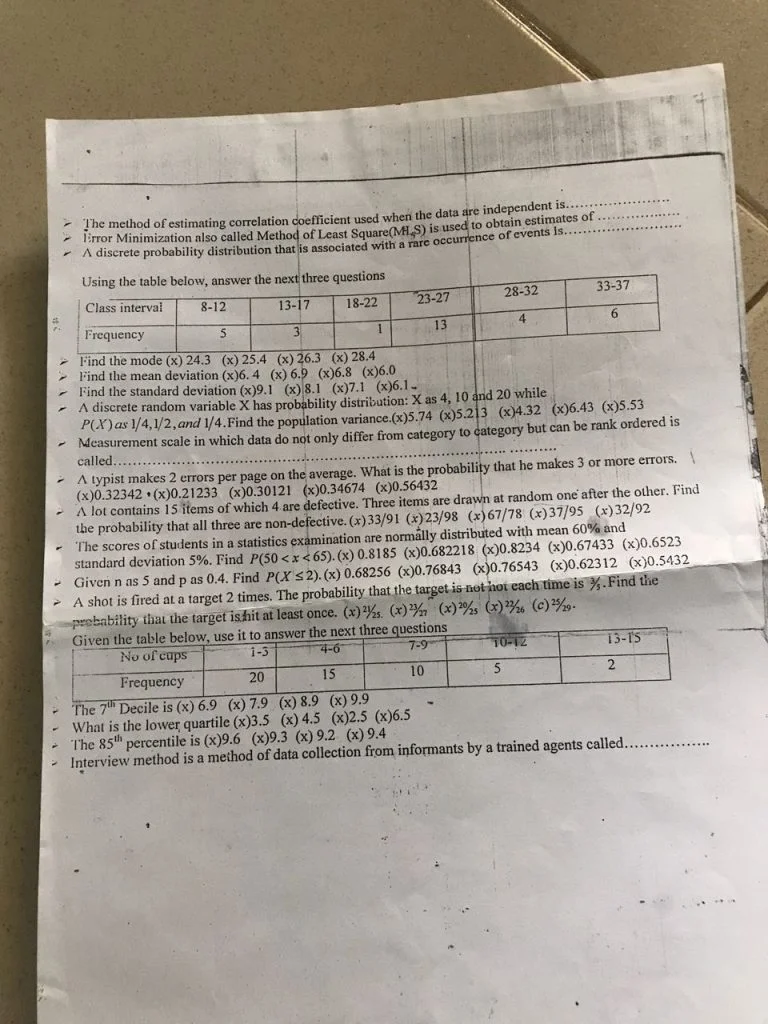EBSU Past Questions
STA 111/101 PAST QUESTIONS AND ANSWERS


- Linear regression model is generally represented mathematically as:
Y = a + bX + e - The coefficient of regression can be estimated by the method called:
Least squares method - Two methods familiar to you for measuring correlation coefficient are:
Pearson’s correlation and Spearman’s rank correlation - The degree of departure from symmetry of a given distribution is described as:
Skewness - When the coefficient of kurtosis is greater than zero the distribution is said to be:
Leptokurtic - The deviation of variables from the true value is called:
Error - A measure of the goodness of an approximation is called:
Standard error - Correct 0.0093 to two significant figures:
0.0093 - A process used to estimate a function which predicts value of response variable in terms of value of explanatory variable is called:
Regression analysis - Measurement scale in which a known quantity possible to order the measurement, but the distance between any two adjacent scores is not consistent is called:
Ordinal scale - What scale of measurement can be used for measuring the distance by land between Lagos and other State capitals in Nigeria?
Ratio scale - Toss simultaneously ten identical coins 50 times recording the number of heads resulting from each toss. The distribution you obtained is called:
Binomial distribution - An estimate of a population parameter is called:
Statistic - Parameters are most often the target of the statisticians because:
They describe characteristics of the population - The statistics that do not vary from sample to sample for repeated samples drawn from the same population is called:
Sufficient statistic - Sampling in which each elementary unit of the population is available at every draw and may be chosen more than once is called:
Sampling with replacement - When the ordered data is divided into four equal parts we refer to the dividing values as:
Quartiles - When it is possible to divide a distribution or graph into two equal parts, it is called:
Symmetrical distribution - A distribution in which mean, median and mode are not equal, it is called:
Skewed distribution - Population variance is symbolically denoted as:
σ² - While sample variance is denoted as:
s² - Comparison of the dispersion of various distributions can be performed by the use of an index of relative dispersion called:
Coefficient of variation - A space of equally likely outcomes of an experiment having equal probability is called:
Sample space - Probability concept defined in terms of the equally likelihood of events or outcomes is:
Classical probability - The sample points produced when a dice is cast are not equally likely. True or False:
False - When the possible outcomes of an experiment cannot both occur simultaneously, then the outcomes are said to be:
Mutually exclusive

I love this
Good 👍